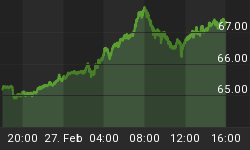This was the headline (sans question mark) of the front-page, right-hand column in today's WSJ. Yes, falling oil prices are a relief for consumers. But before we start marking up our GDP forecasts too much and call off Fed easing, let's try to analyze why oil prices are falling. Is it because the supply of oil has increased of late or is it because the demand for oil has decreased. And, if it is because the demand for oil has decreased, why has it done so?
Although Chevron has made a major oil discovery in the depths of the Gulf of Mexico, it will be years before this supply is available. In the meantime, BP has cut production in Alaska because of corroded pipelines. So, it does not appear that the recent decline in oil prices is a supply-side phenomenon.
Have geo-political conditions with regard to the Persian Gulf calmed down? Not really. Stability has not broken out in Iraq and Iran has not acquiesced to U.S. demands. Is the hurricane season over? No, it still has about six weeks to run. So, it does not appear that the precautionary demand for oil inventories has declined.
Perhaps oil prices have declined because overall aggregate demand in the U.S. is growing more slowly. If that were the case, then not only would oil prices being showing weakness, but so would the prices of other economically-sensitive commodities. Any evidence of this? Of course there is or I would not have brought it up. Chart 1 shows that the price of copper scrap has fallen from a cyclical peak of $3.42 a pound in mid June to about $2.58 a pound currently. Is it just coincidence that copper prices are retreating at about the same time as oil prices or could there be some common cause? And Chart 2 shows that the volume of our energy-related petroleumproduct imports on a year-over-year basis has actually contracted in the first-half of this year - a period when aggregate domestic demand has been moderating too.
Chart 1
Chart 2
So, there would appear to be more evidence supporting the demand-side explanation for the recent decline in oil prices than the supply-side explanation. If it is weaker demand that is explaining lower oil prices, then do not look for a rapid re-acceleration in consumer spending or domestic spending of any sort. To be sure, a decline in energy prices will lead to stronger consumer spending than otherwise would be the case. But this would be a second-order effect if the decline in oil prices is the result of a restrictive monetary policy.















